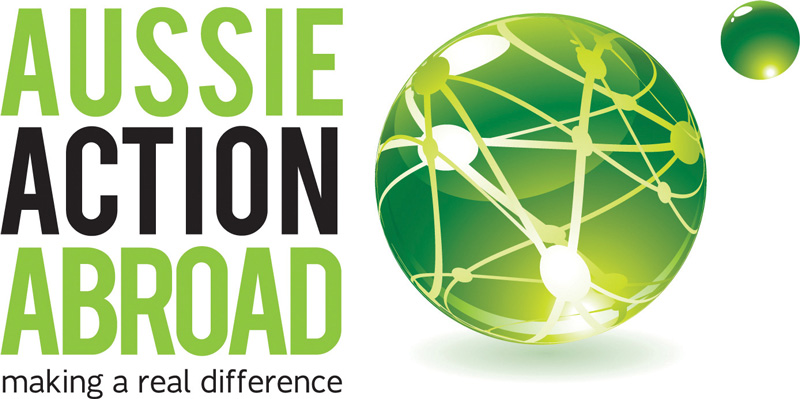Frequently asked questions
FEES
Pricing
Aussie Action Abroad is a not-for-profit registered Australian charity led by Aussie volunteers, at home and on expeditions in Nepal.
We review our pricing yearly, ensuring that it covers the actual cost of each expedition. Expedition fees are dependent on the program selected and its duration.
Minimal community impost
We are privileged to be invited and become part of each community we work with. As volunteers, our ethos is to minimise any financial burden on a host community.
All our food, materials and project resources are purchased from local or community businesses. Project accommodation is community-based and close to the project site. You could be camping on rented farmland after harvest, in school playgrounds or in local guesthouses and homestays.
Can I cover my expedition fees by fundraising?
Yes, absolutely.
From a cake stall or a sausage sizzle to a Facebook birthday fundraiser or Gofundme, we think fundraising is a great way to cover all or part of your expedition fees. You can find us on many online fundraising platforms. You could raise funds with a trivia night, a cake stall, or any way you choose. Just collect and transfer the funds directly and let us know that these will go towards your expedition fees.
What about other donations?
As Nepal is landlocked, freight transport costs are prohibitively expensive, which may prevent us from accepting donated goods. If you are considering whether to bring donated goods, we suggest chatting with the Aussie Action Abroad team first. Contact us to find out more on alternative ways to contribute, raise funds to purchase goods in Nepal or donate to a program or project.
ON-THE-GROUND
Accommodation
We stay at a basic, 3-star hotel (Hotel Thamel) during our orientation and welcome sessions in Kathmandu.
When on-project, we stay within our partner communities.
Construction teams usually camp at or near their project site. For trekking and other teams, we typically stay in tea/guest houses in the local area. However, remote projects may see these teams camping as well. Teams may also move tea/guest houses to share the income amongst community members.
Accommodation is primarily twin-share.
Meals
When on-project, we purchase all food and meals from the local community sources. We eat predominantly Nepali cuisine, with the occasional Western influence. Meals are prepared by our Nepali staff or under their supervision in tea/guest houses.
In Nepal, most meals are vegetarian, and we will work with you to accommodate additional dietary needs as best we can.
Water
All water you consume in Nepal must be purified or treated.
In Kathmandu, bottled water is readily available. When on-project, we will arrange for either boiled water (which you must also treat with purifying tablets) or the bulk purchase of treated water to be shared. Though we would prefer not to use bottled water, boiling water for the prescribed time can become prohibitively expensive.
Transport
The AMT (Accommodation, Meals, Transport) weekly fee covers all your transport costs while on expedition in Nepal. This fee includes airport transfers (during the expedition window), jeeps, chartered buses, local buses and taxis.
Weather
During End of Year expeditions, a winter’s day is typically dry, mild and sunny, reaching around 20 degrees. Nights are cool to cold and about 5 to 10 degrees. Expeditions at higher altitudes can see overnight temperatures drop to below zero.
Mid-year and Spring expeditions should expect the monsoon season’s heat, rain and humidity. Daytime temperatures are around 30 degrees, and nights can be warm at 15 to 20 degrees.
High altitude
Unless expressly stated, our expeditions do not occur at high altitudes.
Our in-country base at Lamjung sits around 740 m, Pokhara at 1000m and Kathmandu at 1,200 m above sea level. Currently, our highest community is at 1,850 m.
Some projects may include a mini-trek with an altitude ceiling of around 2,500 m.
High altitude preparedness is recommended for Trek-for-a-cause participants, depending on their destinations. E.g. Everest Base Camp (5,364 m), Annapurna Circuit (5, 416 m).
Personal spending money
Whether for that extra chocolate bar to keep you going mid-trek or replacing a lost toothbrush, we recommend you budget for a small amount of personal spending money.
ATMs and currency exchange shops are available in larger cities like Kathmandu and Pokhara. Access to these services is rare outside of tourist areas. Therefore, we recommend you have a small amount of spending money in cash (small demonisations) on hand before travelling to your project site.
Tipping
Traditionally in Nepal, trekking guides, porters and expedition staff are ‘tipped’ a small amount of cash when work is complete on treks, summits and expeditions.
Some teams may elect to follow this tradition. For example, after getting to know their team’s Nepali staff, they have chosen to contribute ($20-$50) to a team collection to purchase items such as good boots, a quality jacket or an English class, which are presented at our farewell dinner.
On completion of each expedition, Aussie Action Abroad also ‘tips’ our Nepali staff. After paying our staff, we celebrate their work by presenting each with a ‘tip’ for their dedication and excellent service.
Teams
Our teams are usually limited to 10 participants supported by a dedicated team leader and Nepali staff members for the duration of the expedition.
Additional support may include medical and logistical staff, depending on location, number of teams and expedition size.
